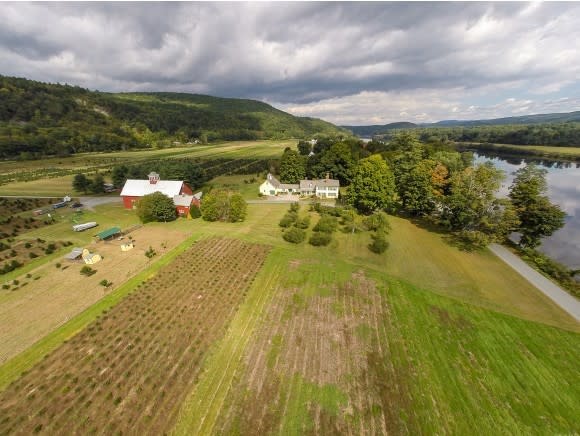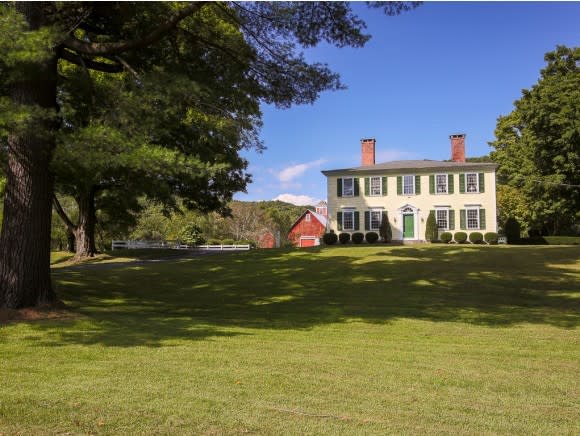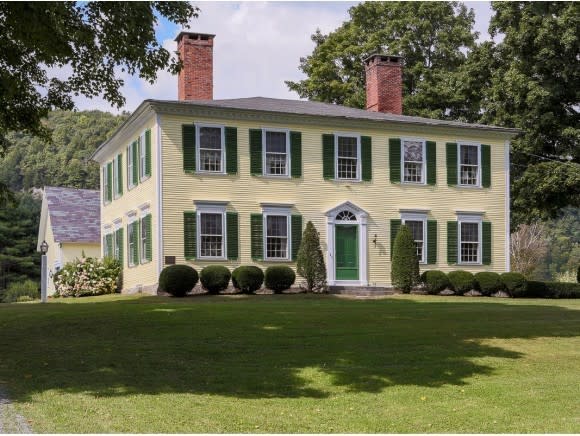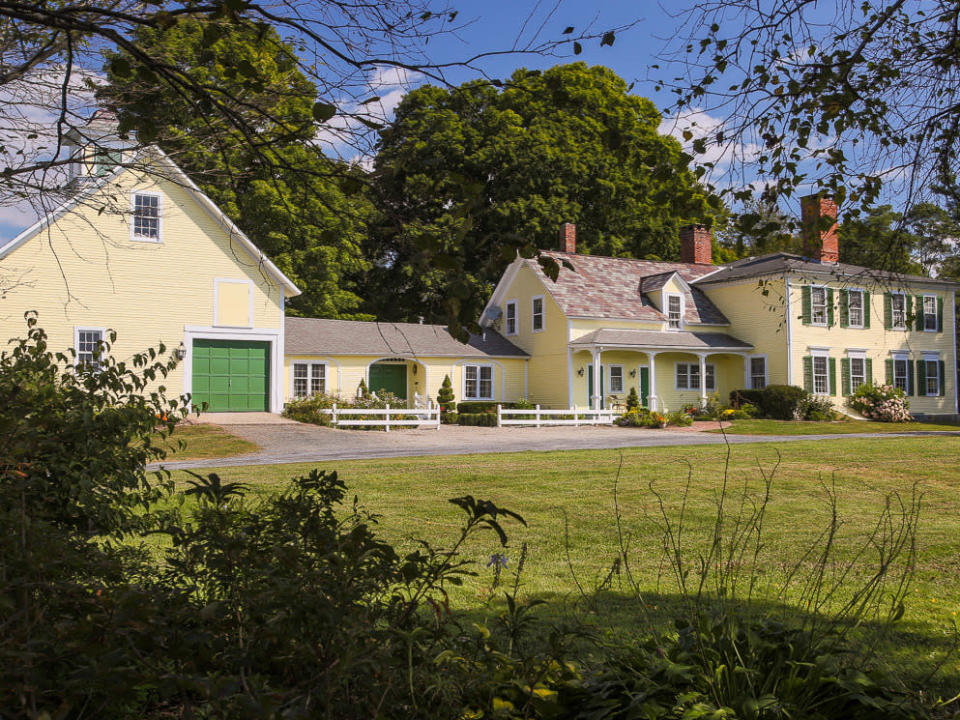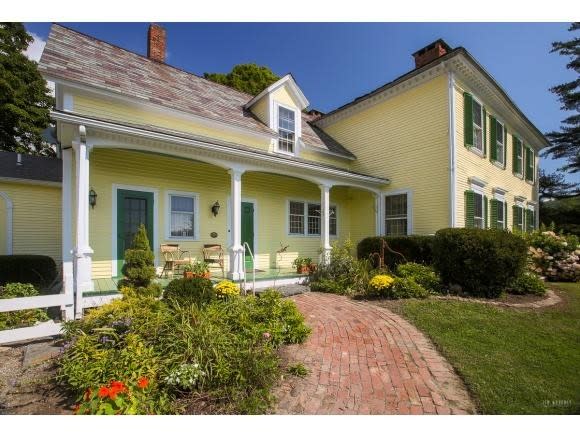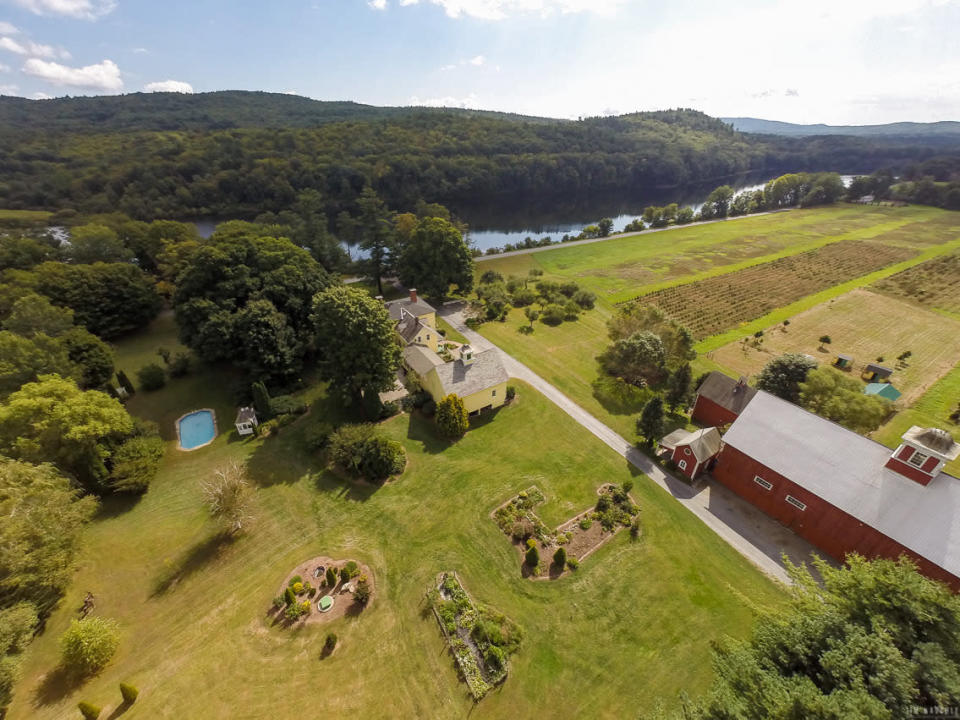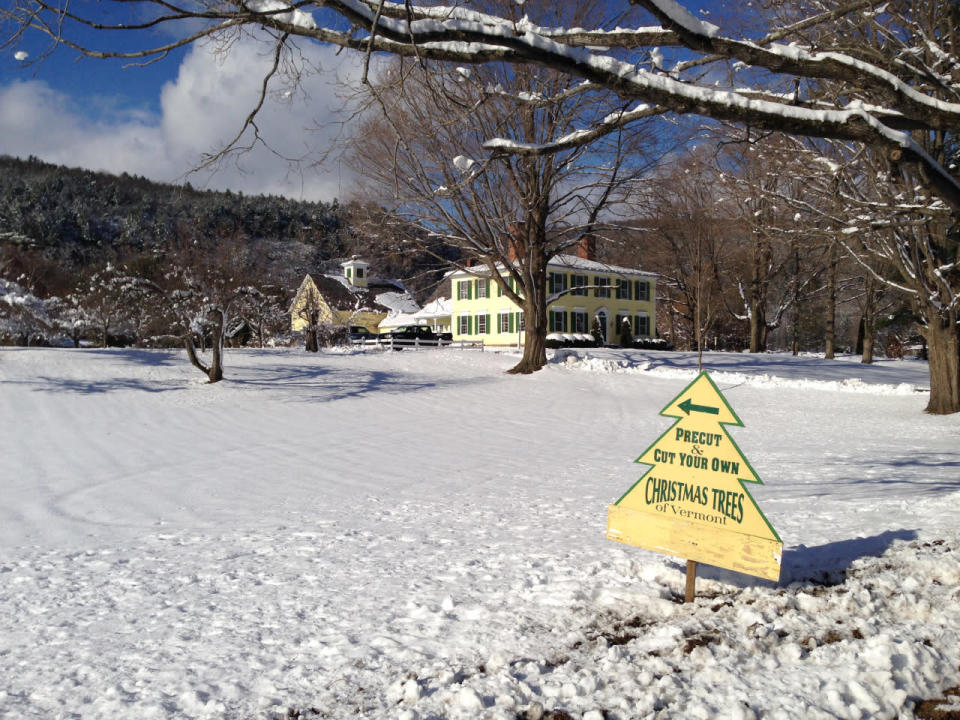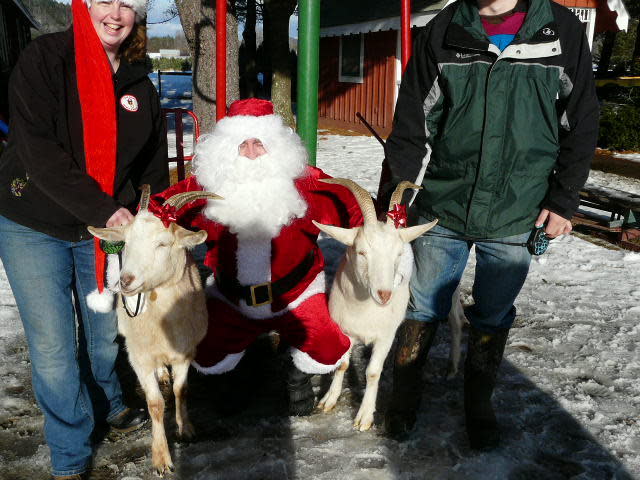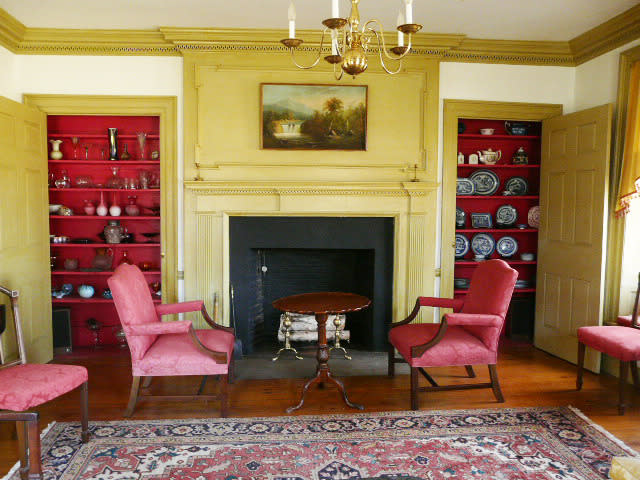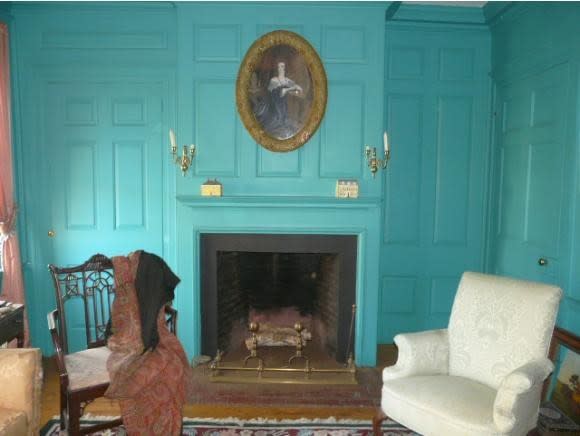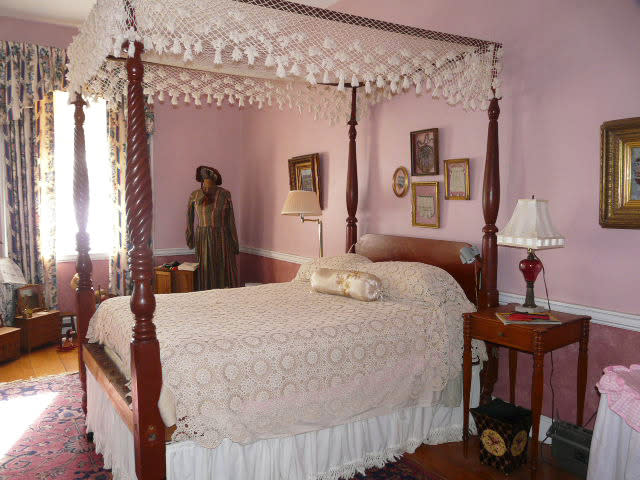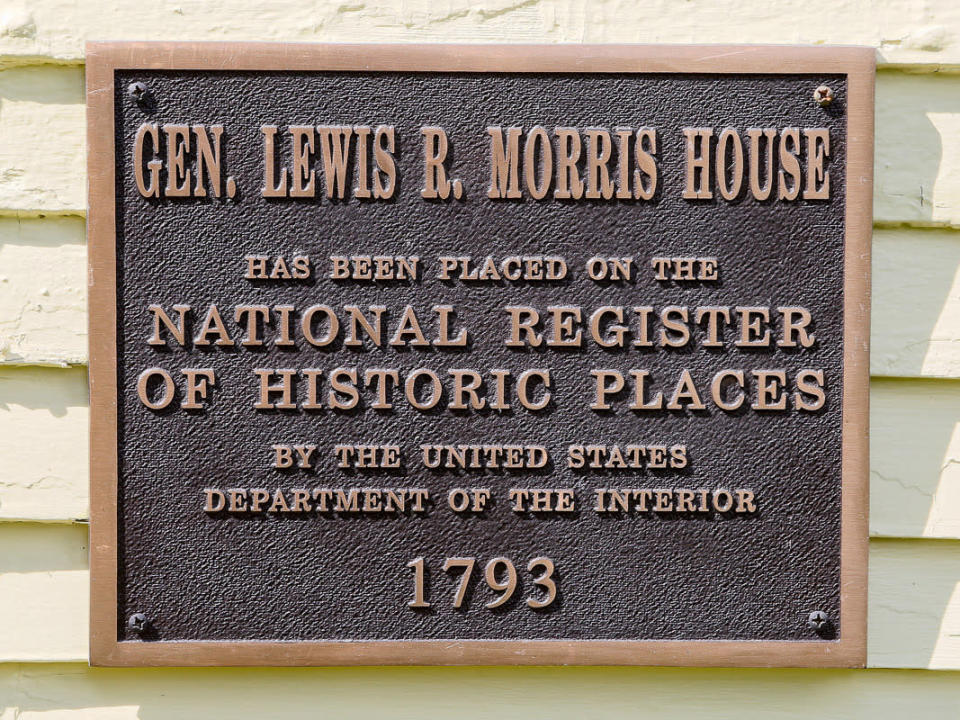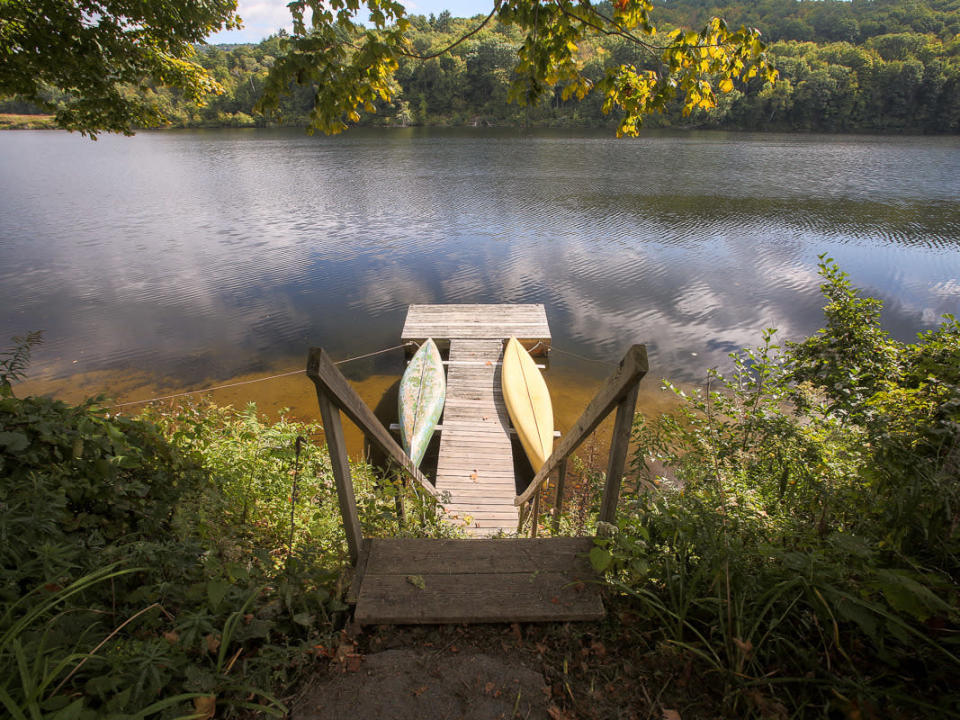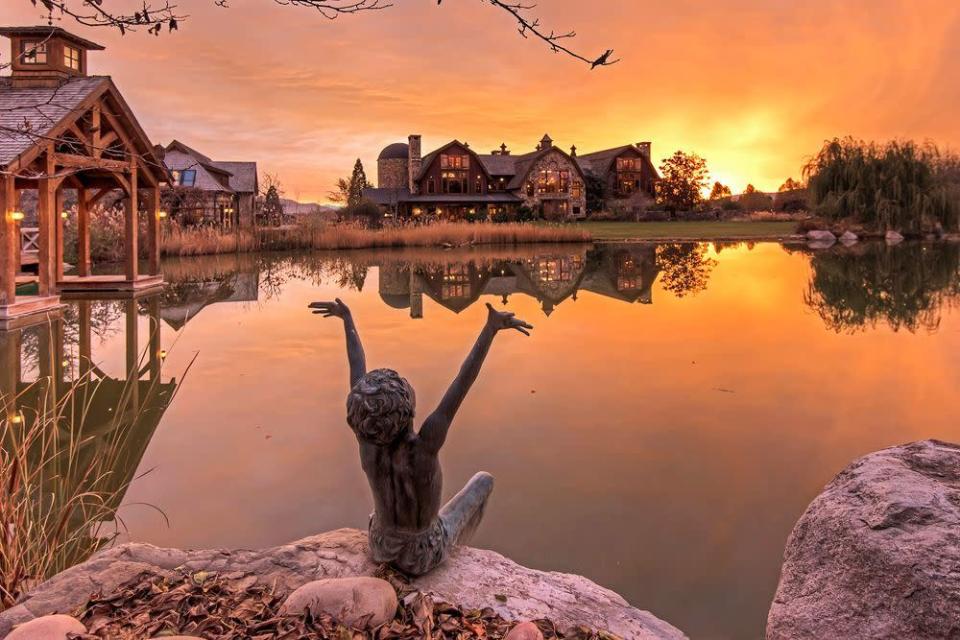Vermont Couple in Their 80s Lists Christmas Tree Farm for Sale: 'We Really Have It All'
This 70-acre Vermont property doesn’t come only with a 200-year-old home, access to a curving river for boating, and a Christmas tree farm. It comes with the holiday memories of generations of customers.
Peter and Sandra Mollica have owned Christmas Trees of Vermont as an early-retirement venture for more than 35 years, but they’re now in their 80s, and running the farm with son Kim is getting to be a big job. Their $1.5 million listing offers a rare opportunity to dive right into a long-established business, one that attracts thousands of families from all over New England every year.
“We really have it all,” Sandra Mollica tells Yahoo Real Estate. “We’re lucky enough to live in a wonderful state that cares about the environment. We have all these nice people that come once a year to buy the most beautiful Christmas trees.”
Despite the fir-scented romanticism of their endeavor, the Mollicas didn’t decide to open the farm because they had an obsession with Christmas or a lifelong dream of growing and selling Christmas trees. What they did have was 70 acres of prime Vermont soil.
“You can probably tell from the photographs, but it’s very, very fertile soil. It’s probably the only 70 acres in Vermont without a rock,” Sandra Mollica jokes.
The farm is on a flat stretch of land next to the Connecticut River. It’s ideal for agriculture, but it wasn’t very profitable when the Mollicas bought it. “The land had been rented out to growing corn. … It didn’t even pay the taxes.”
But Christmas trees had decent retail value. They could be sold wholesale or individually in cut-your-own style, and they have unique tax advantages: Not only is land actively engaged in agriculture taxed at “land use” instead of the much higher “fair market” value; profits from the production of Christmas trees are taxed by the federal government at lower capital gains rates and are not subject to the self-employment tax, according to Peter Mollica.
So they planted thousands of them—Fraser firs, because they don’t lose their needles—and waited for them to grow. It takes seven to eight years for Christmas trees to reach maturity, listing agent Chris Lang says, and once they had, the Mollicas had a fully operational Christmas farm.
This year, the Mollicas estimate they’ll have 6,000 visitors. That’s a lot.
“Yeah, I know, because we live in a town of about 10,000 people,” Sandra Mollica says.
Over the decades, they’ve added special features that round out a real Christmas-tree-chopping experience: a hut for hot cocoa, a pretend fire engine and a trolley, hay rides, and of course, Santa Claus.
“We are actually now seeing third-generation kids coming through,” Sandra Mollica says. “It’s just rewarding, and people love to tell us how ‘Oh, I’ve been coming here since you opened and I brought my children and now I’m bringing my grandchildren.’”
One group stands out: a gaggle of about 80 Bostonians who come up every year.
“They drive up and they stay at a local hotel on Friday night and then on Saturday this whole group comes over to our place with their trailers and gas grills, and they cook and cut trees and have a good time,” Sandra Mollica says. “They have been doing that for 22 years.”
The pack’s leader passed away suddenly a few years ago, but the group soldiered on with their plans to visit the Vermont Christmas tree farm. When the Mollicas found out what happened, “we planted a special memorial tree in his honor. So his group and his widow and children continue to come, and they gather by the tree and decorate it and remember him,” Sandra Mollica says.
Families are also allowed to bring their pets to the farm, and one couple brought a particularly unique pair of animals: two goats, dressed up in costume for the holiday season. The couple was training them to carry packs so they could all go hiking together.
“I have so many mental images of all the families I’ve seen for years now,” Sandra Mollica says.
Peter Mollica retired early, at age 50, as a lawyer and economist in Washington, D.C., his wife says. The family decided to spend their retirement up in Vermont, first buying the house on 2 acres, then expanding soon after.
The home was built in 1793, originally out of bricks created from the nearby soil and clad with siding, its original construction. The four-bedroom, five-bathroom house stretches over nearly 6,500 square feet and has eight wood-burning fireplaces. It also includes a pool and sauna outside.
About 35 miles from Dartmouth College near the town of Springfield, the property also includes a dock where you can access 20 miles of navigable river, sandwiched between two dams, Lang says.
Beyond the Christmas trees, which number 30,000, the property includes two guest cottages, which the couple rents out for extr income.
According to a tree valuation written by Peter Mollica, the next owners could make $417,552 if they sold all the trees at a wholesale price. If the new owners continue the cut-your-own retail business and sell about 1,930 trees a year, it will take 15 years to clear the farm, creating a profit of $57,176 each year. If the owners want to resume a combination of retail and wholesale, the trees will be cleared in five years and create a profit of $174,091 per year—without planting a single additional tree.
More dream homes on Yahoo Real Estate:
• Family’s Dream ‘Barn’ Cost $32M to Build, Now Asks $19.5M (80 photos)
• Ousted Men’s Wearhouse Founder Is Downsizing in Hawaii – to Neil Young’s $20M Pad (38 photos)
• ’Biggest Log Cabin in the World’ Is Michigan’s Most Expensive Home (34 photos)
